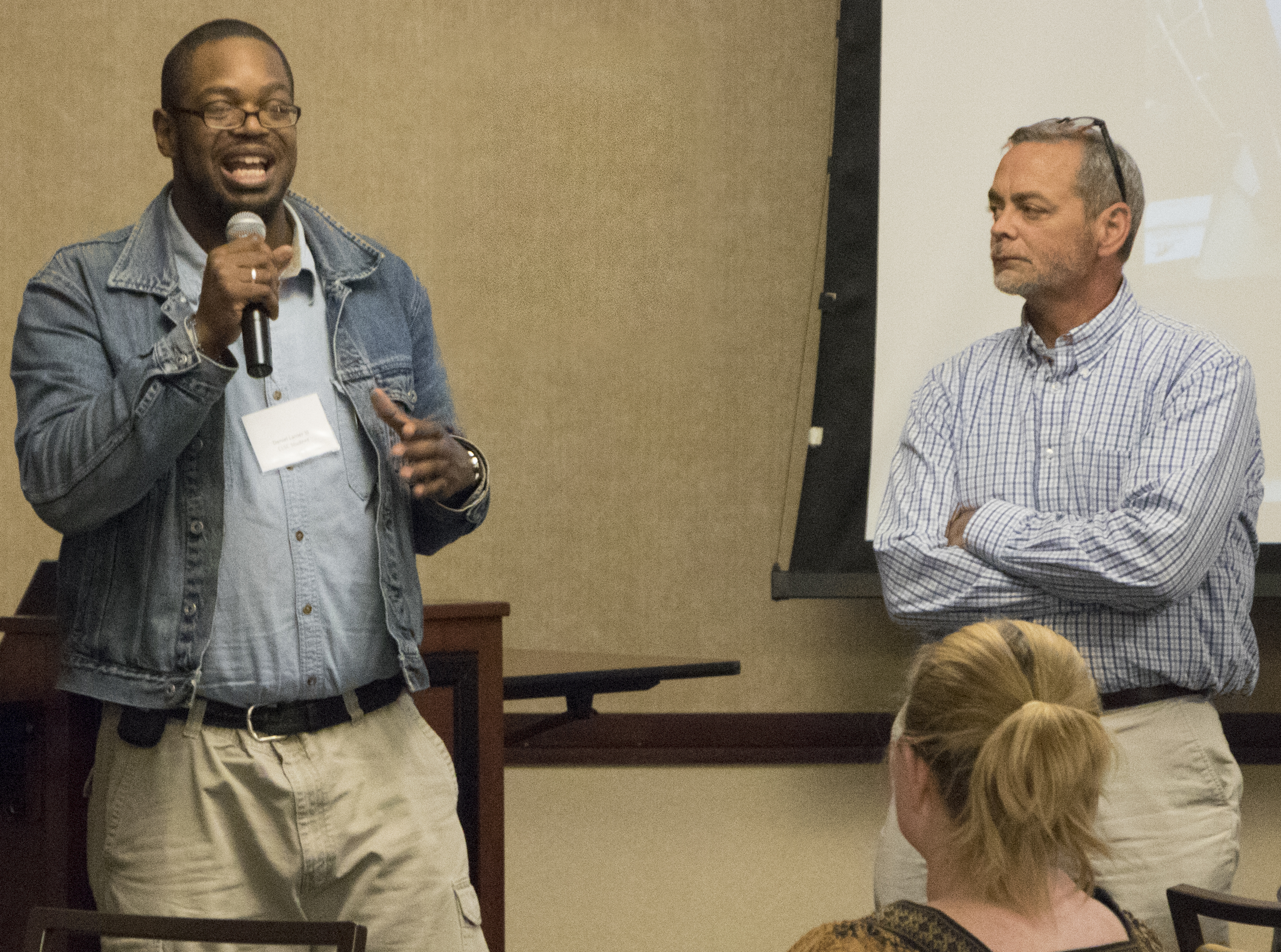Open your heart
By Daniel Lanier

Daniel Lanier, left, with his mentor for the day, Eric Ruth.
People with disabilities are often treated unfairly in the workplace. To make matters worse, people with disabilities who come from a minority racial background are at even more of a disadvantage. As a black man with autism, I fit into that category. I believe a person, regardless of disability or the color of his skin, should be evaluated on the content of his character and on the quality of his work as an employee. However, the stigma still exists that people with disabilities are not smart, not bright and in some cultures even considered evil. People with disabilities need more opportunities to show that they can be good workers.
Last month, Disability Mentoring Day provided employers and people with disabilities an opportunity to work, learn and (hopefully) dispel some myths about people with disabilities and their capacity to be good workers. I had the opportunity to participate in Disability Mentoring Day as a student in the Career and Life Studies Certificate (CLSC) program at the University of Delaware.
Working with professional writer Eric Ruth from the UD Messenger magazine taught me how to become a better writer and editor. Eric gave me an assignment to highlight the critical parts of a story he was editing that concerned a UD event featuring former Vice President Joe Biden and Ohio Governor John Kasich, which I did. Not only did Eric teach me more about a writer’s job responsibilities, he also gave me a sense of importance by including me in his working process. We collaborated. Eric discussed the phases of writing, from brainstorming and finding an interesting topic to the difficulties of actually being a professional writer. The reality is that not all people who want to become writers can find full-time employment.
I now understand that the road to becoming a writer will be a long and bumpy one, but I am determined. What was most important to me on Disability Mentoring Day, however, was the fact that I was being included. For most of my life, I have been told I can’t do this or that – from sewing to finding a good job – and that I can’t function in society. I beg to differ. I am proof that someone with a disability can succeed (and fail) if given the opportunity. It was said that students with intellectual disabilities couldn’t go to college not too long ago, yet here I am. I am currently in college at UD working on my coursework and improving my skills as a writer so that one day I can have a position similar to Eric’s.
We need more programs that help people with disabilities get work and job shadowing opportunities – programs like Disability Mentoring Day. By doing so, we allow people with and without disabilities an opportunity to learn from each other and understand each other’s value. Eric gave me that opportunity on Disability Mentoring Day and I am grateful. Businesses would benefit from having people with disabilities as part of their workforce because it would show to others just what we are capable of and help companies find creative solutions to problems they face. Once you open your heart to a world where people with disabilities are included in the workforce, so much more becomes possible.


Comments